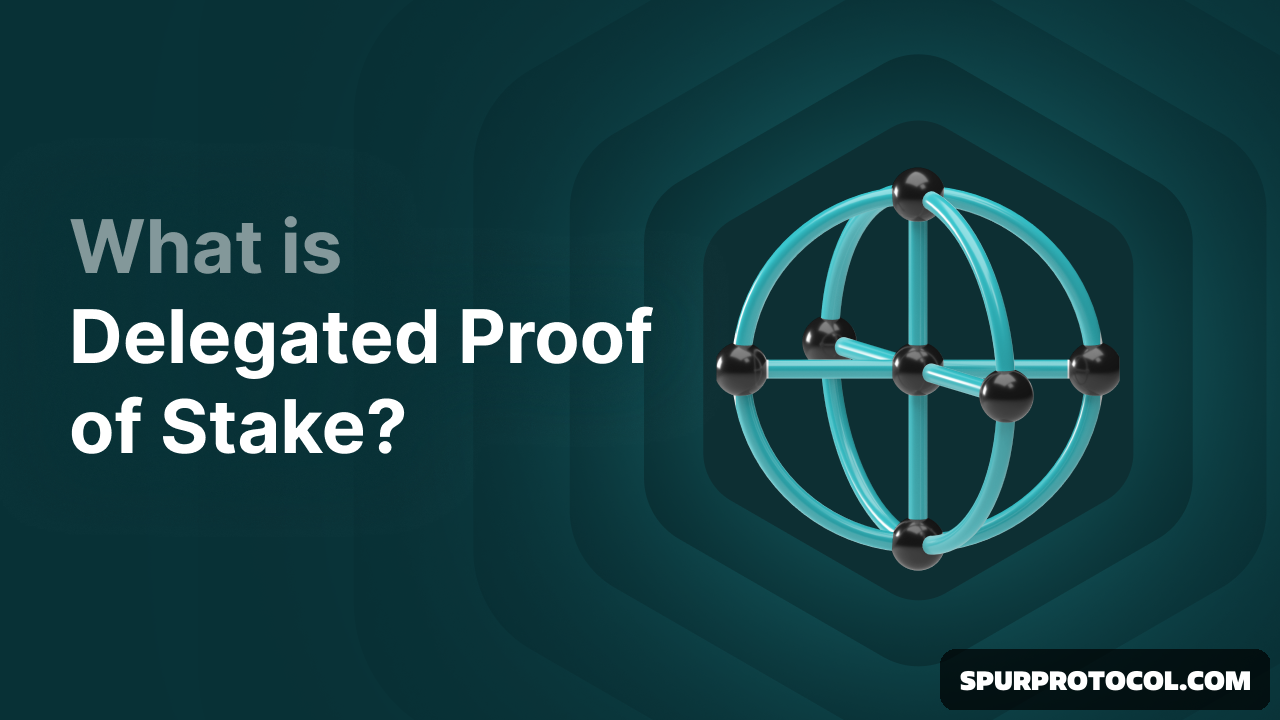What Is Delegated Proof-of-Stake (DPoS) And How Does It Work?
Delegated Proof-of-Stake (DPoS) is a consensus mechanism used in blockchain technology to determine who can validate transactions and add new blocks to the blockchain. DPoS was developed as an alternative to traditional Proof-of-Work (PoW) and Proof-of-Stake (PoS), because PoW consumes a lot of energy and PoS blockchains can potentially lead to high concentrations of power.
Go Back

🕒 7:49 PM
📅 Nov 15, 2025
✍️ By chrison2
°Delegated Proof-of-Stake (DPoS) is an energy-efficient consensus mechanism developed as an alternative to Proof-of-Work and Proof-of-Stake.
°Users vote for a limited group of delegates who are responsible for validating transactions and creating new blocks.
°Voting power depends on the number of tokens held, which gives influence over network governance.
°Delegates are rewarded for their work and may share those rewards with voters, increasing engagement.
°Some DPoS networks use Byzantine Fault Tolerance (BFT) for added protection against malicious actors.
°Notable blockchain projects using DPoS include EOS, TRON, and BitShares.
📍How does Delegated Proof-of-Stake (DPoS) work?
Delegated Proof-of-Stake works like a representative democracy where token holders not only provide value but also voting power. Each token holder can vote for a number of delegates who then validate transactions and add new blocks to the blockchain. Here's a step-by-step breakdown:
Step 1: Voting for delegates
Network token holders vote for a certain number of delegates (usually 21 to 101 depending on the network). Voting power depends on how many tokens a user owns.
Step 2: Selection of delegates
Delegates are ultimately selected based on voting results and are assigned the task of validating transactions and adding new blocks. The selected delegates function as a kind of blockchain parliament.
Step 3: Adding blocks
Block addition to the blockchain is done in turns. Delegates take turns validating transactions and producing new blocks. The order in which delegates produce blocks is regularly rotated based on a predefined schedule.
Step 4: Rewards and accountability
Delegates earn rewards for their work in the form of transaction fees and/or new tokens. They may choose to share these with their voters. Voters can also switch their votes to a different candidate if a delegate misbehaves.
📍What are the advantages of Delegated Proof-of-Stake (DPoS)?
Delegated Proof-of-Stake (DPoS) offers many advantages, summarized below:
High transaction speed
DPoS is designed for fast transaction execution. With only a small group of block-producing delegates, transactions can be validated in seconds.
Low energy consumption
Compared to Proof-of-Work, Delegated Proof-of-Stake (DPoS) is far more energy-efficient and environmentally friendly. DPoS participants do not need to solve heavy cryptographic puzzles.
Community-oriented
On the DPoS network, token holders have a say in who governs the network. This often makes DPoS blockchains more community-driven than other consensus mechanisms.
Lower costs
Thanks to the efficiency of DPoS systems, network and transaction fees on these blockchains are typically much lower than on others.
Fair and transparent
Delegates are regularly replaced if they fail to fulfill their roles in the blockchain ecosystem, keeping the system fair and transparent.
